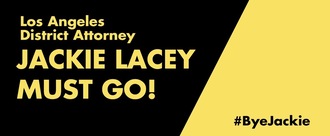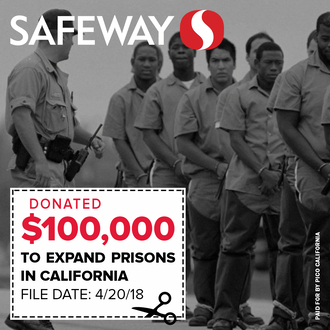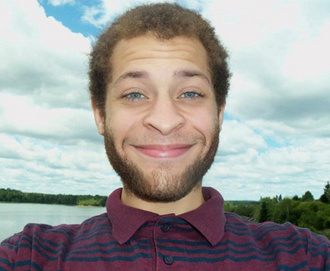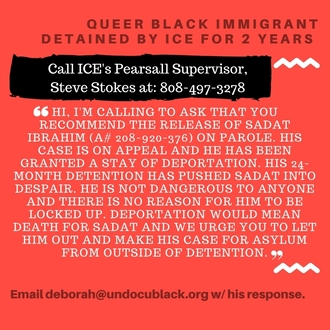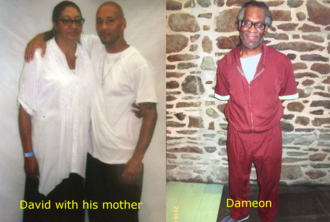- Featured
- Afropunk Army
- Community Control
- Confederate Symbols
- Cop Watch
- Corporate Accountability
- Criminal Justice Policy
- Drop/Bring Charges
- Economic Justice
- Education
- Employment Discrimination
- End The War on Black People
- Environmental Justice
- For-Profit Colleges/Universities
- Gulf Coast
- Housing Rights
- Immigration
- Invest-Divest
- Media Accountability
- Music Industry
- No Guns in Schools
- Open Internet
- Police Accountability
- Political Power
- Pop Culture
- Private Prisons
- Reparations
- Reproductive Justice
- Right Wing Racism
- School-to-Prison Pipeline
- Sports
- Voting Rights
- Wrongful Imprisonment
- More
-
Los Angeles County District Attorney Jackie Lacey Should ResignMany of the families of those killed by law enforcement in Los Angeles County, Black Lives Matter, White People for Black Lives, Centro CSO, March and Rally, the Southern Christian Leadership Conference, Los Angeles Community Action Network, Stop LAPD Spying Coalition, California for Progress, Youth Justice Coalition, Community Coalition, and 40 additional community organizations, and hundreds of individuals – your constituents – have been rallying outside of your office since October 2017. The call to date has been for you to prosecute the police who kill our people. We have attempted to engage you in dialogue; you have refused and we are regularly met with hostility and disrespect. We are now calling on you to step down for refusing to serve “The People” whom you are duty-bound to represent. We began our current efforts by delivering a petition signed by more than 10,000 Angelenos demanding that you prosecute the police who kill our people, beginning with the five officers who were dismissed from Inglewood Police Department after killing Kisha Michael and Marquintan Sandlin while they were sleeping in their car. We then requested a community meeting with you, an invitation that you initially tentatively accepted during a December 2017 phone call and then reneged. A townhall was held, to which you were invited, but did not attend (despite confirming availability), on January 21, 2018. We have submitted hundreds of faxed, mailed, emailed, and telephone requests asking that you engage the community. You have refused. Most recently, on May 30, 2018, we attempted to deliver a letter as part of the national #RealChange campaign to pressure District Attorneys to be accountable to the people. Despite following the delivery instructions negotiated with your office, the Sheriff proceeded to lock us out of the public building that you occupy. More than 400 Los Angeles County residents have been killed by law enforcement on your watch. You have refused to file charges against a single officer, even when they have been found to have acted “out of policy” (as with Ezell Ford), are disciplined or dismissed as a result of their actions (as with Kisha Michael and Marquintan Sandlin), when there is an apparent cover up (as with Wakiesha Wilson), and/or are recommended for charges by their law enforcement units (as with Brendon Glenn). Your record is shameful and is indicative of a clear unwillingness to act on behalf of the people. Moreover, your complete unwillingness to do your job endangers the community that you are supposed to serve. For these, and many other reasons, we call on you to immediately vacate your position as District Attorney of the County of Los Angeles.1,217 of 2,000 SignaturesCreated by Melina Abdullah
-
Tell Corporations to Stop Funding Prison Expansion in CaliforniaCalifornia is facing an extremely serious threat to criminal justice reform. This prison tax and expansion proposal misleadingly named The Reducing Crime and Keeping California Safe Act, backed by law enforcement and the subject of an active signature-gathering operation in the field, represents a dangerous step backward for the state and a threat to future reform. This measure is essentially a tax to expand prisons, an effort to increase law enforcement budgets and defund investment in intervention and prevention. Raleys, Costco, and Ralph’s have donated to the signature gathering effort and has indicated that they will donate more if the prison package were to qualify for the ballot this year. Join us in sending a clear message to Safeway that we will boycott their stores if they do not (1) demand that their donations be returned ASAP, and (2) publicly oppose this prison expansion proposal! - - - GET THE FACTS New Ballot Measure Proposal Increases Prison Spending What is the so-called “Reducing Crime and Keeping California Safe Act of 2018?” This proposed initiative for the November 2018 ballot would do four main things: make repeat thefts with a value of $250 or more prosecuted as a felony (which would be among the very lowest felony theft thresholds in the nation), authorize law enforcement to collect a person’s DNA upon arrest for misdemeanors, make it easier to incarcerate someone for a technical violation of parole or probation, and limit the number of people in prison that can earn a parole hearing by completing rehabilitative and educational programming. All of these will increase taxpayer spending on prisons, reduce rehabilitation and drive the prison population up – at a time when California has been working to right size it’s bloated prison population and rebalance public safety spending priorities. The initiative is being pushed primarily by Sacramento Assemblyman Jim Cooper and Sacramento County District Attorney Anne-Marie Schubert, as well as key local and statewide law enforcement associations that have opposed justice reform for years, including the Association of Deputy District Attorneys for Los Angeles County and the Association for Los Angeles Deputy Sheriffs. Proponents of the initiative need to secure over 365,000 valid signatures by June 1 in order to qualify the initiative for this November’s ballot and they are actively in the field collecting signatures. Myths and Facts About the Proposed Initiative MYTH: Recent criminal justice reforms have caused crime in California to skyrocket FACT: Crime rates in California are currently at historically low levels. Statewide violent crime rates have declined by nearly 50 percent since 1992, and statewide property crime rates have decreased by nearly 42 percent, despite significant increases in California’s population during the past 25 years. More recent trends also reflect the fact that crime in California is continuing to go down. Between 2010, the first year before Public Safety Realignment was effectuated, and 2016, the last year for which complete data is available, statewide property crime rates decreased by three percent, with 34 of the state’s 58 counties seeing overall property crime declines during this period. Statewide violent crime rates are essentially flat during this time period. And during the first half of 2017, a majority of California cities with populations of 100,000 or more saw overall decreases in violent and property crime when compared to the first half of 2016. MYTH: Law enforcement is now prevented from stopping low level crime. FACT: Proposition 47 maintains California state laws that provide law enforcement authority to arrest and book into custody individuals suspected of committing misdemeanor offenses. California law also authorizes detention for individuals in misdemeanor cases, including Proposition 47 offenses, when officers have probable cause to believe a suspect has committed a crime and it is in the best interest of public safety to detain. The maximum penalty for misdemeanors in California law is one year in county jail. An individual that is convicted of multiple misdemeanors may be sentenced to multiple years in jail. Additionally, judges can sentence misdemeanants to treatment, supervised misdemeanor probation, and community service among other options. Importantly – even before California’s era of justice reform – the vast majority of low-level crime is not reported or prosecuted. Thus, arrest and prosecution strategies alone cannot effectively stop the cycle of low-level crime. Innovative approaches to bring community, businesses and law enforcement together can go further to prevent and detect low-level crime problems. Law enforcement can partner with local leaders to develop diversion programs and neighborhood problem solving strategies that address the drivers of crime. MYTH: Violent and dangerous individuals are being automatically released back into the community en masse FACT: There is no automatic release under Proposition 57. Rather, an individual who completes rehabilitative and educational programming can earn eligibility for a parole hearing, at which the parole board reviews the case and must still deem that person to be a low risk to reoffend before the person can be released. If a parole board determines that someone with a qualifying non-violent offense is at risk of committing additional crimes, that person will remain incarcerated. As of January 31, 2018, 80 percent of the parole hearings held under Prop. 57 have ended with release being denied. Investments in rehabilitation support public safety by addressing the root causes of criminal behavior and reducing a person’s likelihood of reoffending. Research shows that successfully completing rehabilitation programs significantly reduces the likelihood that an individual will reoffend upon release.4,109 of 5,000 SignaturesCreated by Ben McBride, PICO California
-
Sign Onto The People's Budget: Break The Cages, Fund The PeopleOn May 1st, at 5pm at City Hall, The Philadelphia Coalition for a Just District Attorney is gathering our movement under a call to end mass incarceration and reinvest in the communities most affected. For too long, “tough on crime” policies have deliberately targeted our black, brown, and working class communities -- ICE is tearing apart families, our youth are being criminalized in school and treated as adults by our overzealous criminal justice system, and the legal system's reliance on cash bail continues to overcrowd our prisons, keeping the House of Correction facility open despite its notoriety for its decrepit conditions. While District Attorney Larry Krasner has made significant progress in his mandate to challenge mass incarceration, our coalition recognizes there are other political actors who hold the power to divest from prisons and invest in people. In the upcoming months, the School District of Philadelphia, the Philadelphia Police and Prison Departments, and the First Judicial District will be presenting their fiscal year budgets to City Council for approval. On May 1st, both the Police and Prison Department will be presenting their budgets. We need Philadelphia City Council to support a "People's Budget" and use these hearings to advocate for increased funding for our public school system and decreased spending on incarceration.573 of 600 SignaturesCreated by Philadelphia Coalition For a Just DA
-
Justice for Chance David Baker NowBeing mentally ill and Black in public is not a crime, nor is it a justification for murder. A life-and-death decision was carried out by Sgt. Goodman within 155 seconds, this points to the undoubtable prejudice against Blackness and mental illness. This is the very prejudice that causes a non-violent Black 22-year-old with a BB gun to be murdered whereas a White 19-year-old who killed 17 people be taken alive by police. Nikolas Cruz was characterized by his lawyer and media as a “broken child,” that “lacks impulse control.” In this country white terrorists are offered the fullest humanity and reprieve because white supremacy has institutionalized their superiority and protection. White Police Officers like Goodman benefit from white supremacy as well. How is a decorated officer trained in de-escalation, who murdered two people allowed to remain on active duty? His only consequence to date was administrative leave. Officer Goodman has served for 15 years and is trained in de-escalation. It is within reason to believe a trained officer would take appropriate measures to connect Chance with Portland Police mental health liaisons. This is not an isolated injustice. It speaks to the on-going realities of police brutality and criminalization of Black bodies in this country. In fact, Sgt. Goodman's actions reflect the violent training of officers: “There is no such thing as ‘we’re going to shoot the gun out of their hand or shoot them in the thigh,’” said Portland Police Chief Sauschuck. “I’m not training them to, nor do our policies and procedures state that they should wound somebody. They are trying to hit this individual in a lethal location,” Sauschuck. (BDN, Feb. 22, 2017) The police continue to mistreat, terrorize, and murder people of color and are able to walk away free. We need to talk about Chance, share pictures of his sweet smile, and remind each other what we continue to lose when we uphold a system that won’t punish people who kill Black children and adults. We affirm that all Black lives matter. We affirm that Chance David Baker’s life matters. We stand in solidarity with Chance’s family and community. And as his concerned community, we demand Attorney General Mills release a report and find Sgt. Goodman guilty for the reckless murder of Chance David Baker. We will not settle for task forces or body cameras, we want justice and we need it NOW.859 of 1,000 SignaturesCreated by Iris SanGiovanni
-
Minimal Sentencing for Wriply Bennet of the #BlackPride4On June 17th, 2017, four Black queer and trans people--now known as the BlackPride4--were violently arrested while peacefully protesting the Columbus Pride Parade to draw attention to the disproportionate murder of trans women of color and the non-indictment of Philando Castile’s murderer, Minneapolis Police Officer Jeronimo Yanez. After months of widespread outrage at the police brutality against the #BlackPride4 and their subsequent arrests, three of them have gone to trial and were found guilty on February 12th, 2018 of charges ranging from disorderly conduct to resisting arrest. With a quickly approaching sentencing date of March 13th, 2018, we must continue the fight to #FreeTheBlackPride4. Their lives and futures hang in the balance, and Judge Ebner is the sole gatekeeper to their freedom. Wriply Bennet and her lawyer have suggested that folks all over continue to show their solidarity in hopes that the Judge is lenient. We really need to keep these Black trans activist home and free from any jail time -- sign the below petition to urge Judge Ebner dole out minimal sentencing to Wriply of the #BlackPride4! -- Here's the petition! Dear Honorable Judge Ebner, We write today in support of Ms. Wriply Bennet and to urge you to deliver the most minimal sentence to her. Ms. Bennet is an asset to our community. Columbus will benefit by Ms. Bennet being allowed to continue the great work she is involved in the community, and our entire community will feel the negative impact should she be required to serve jail time. Ms. Bennet is a nationally recognized artist who has organized around community service efforts for years. In addition, Ms. Bennet has acted as a consultant for local organizations (like Kaleidoscope Youth Center and the Trans/Queer Racial Justice and Transformation Network of the OSU Sexuality Studies Program and others), providing much-needed support to groups working to better our communities. We know that it would be most beneficial to our city and country if she had the opportunity to continue investing her skills and leadership directly into the community instead of serving jail time or navigating restrictive supervision. We respectfully request that you also consider that incarceration is particularly dangerous and traumatizing for Black trans women, who are already faced with the looming threat of violence in their day-to-day lives. For recent context, Ashley Diamond, a Black trans civil rights activist in Georgia, was assaulted, placed into solitary confinement, and denied her medication while incarcerated in 2015. As a direct result of the conditions she experienced, Diamond currently suffers from PTSD and other mental health issues that have hindered her integration back into her communities. We as individuals, join with numerous local and national organizations that have publicly supported Ms. Bennet. In the past eight months, groups from all over Columbus and beyond have offered vocal and material support for the #BlackPride4, from releasing public statements (Buckeye Region Anti-Violence Organization, Equality Ohio) to being present during the week of trial (including BQIC, TransOhio, People’s Justice Project, Showing Up for Racial Justice, Yes We Can Columbus, and former 2017 Stonewall Columbus Pride Planning Committee members who resigned from the Planning Committee due to Stonewall Columbus’ response to the Pride protest). This coordinated, community support demonstrates the interest that has been taken in their case, both locally and nationally, as well as in the defendants’ futures as free people. We understand that as the presiding judge in the case, you have a duty to honor the verdicts given in a court of law. We believe it is imperative that our community’s constitutional rights to peaceful assembly and free speech be protected. Our First Amendment rights enabled so many before us to call attention to social issues and spark lasting change. In light of those interests, the vast network of support for Ms. Bennet, and her history of community service, we urge you to give the absolute minimum sentencing to Ms. Bennet.4,356 of 5,000 SignaturesCreated by Black Queer & Intersectional Columbus
-
#FREESADAT: Demand the release of a Gay Black Asylum Seeker from DetentionSadat Ibrahim is a young gay man from Ghana where homosexuality is a crime punishable by three years in prison. Sadat had been brutally attacked by a homophobic vigilante gang back in Ghana, the ‘Safety Empire’, that hunts down, beats up and kills gay people. Fearing for his life, he planned a long escape route, and finally made it to the Mexican/U.S. border and presented himself at the border requesting asylum. An asylum officer agreed that Sadat had a credible fear of persecution. His family sent videos supporting his claim to Sadat in detention in Georgia, but not only did the officers in the detention center not give Sadat this critical evidence, they never even told Sadat that the evidence had arrived. Without the corroborating evidence, the judge denied Sadat asylum. Sadat faces deportation back to the same situation that may see him incarcerated, attacked and/or murdered for being gay, as his asylum claim was denied. Had Sadat been able to share the video evidence that ICE withheld from him until after the hearing, we believe the judge should have granted asylum to Sadat, and likely would have done so. Sadat’s legal team has managed to win him a temporary stay of removal so why is he still being detained?122 of 200 SignaturesCreated by Deborah Alemu (UndocuBlack)

-
#NoJusticeNoDealWe are concerned about ongoing negotiations over a new police contract between the City and County of San Francisco and the San Francisco Police Officers Association (POA). We are requesting that Mayor Farrell direct the Department of Human Resources to negotiate a Memorandum of Understanding that prioritizes public safety and police accountability and represents the needs of communities most impacted by over-policing, racial profiling, and police violence. We support workers and unions. Many of us are union members. The POA, however, is not like other unions that focus exclusively on wages and benefits and reasonable working conditions for their employees. The POA exerts far more power and control over the City’s residents and visitors. Further, the POA consistently uses labor law to exert enormous influence on public policy and public safety by blocking or delaying common-sense reforms that would make San Francisco safer. Examples include using meet-and-confer to negotiate a weaker body camera policy and suing the City to block the vastly-improved and unanimously-passed use-of-force policy. The POA has taken hardline stances and used inflammatory tactics that destroy trust between residents and police. It regularly and publicly attacks police accountability champions—including elected officials, prominent athletes like Colin Kaepernick, and its own police members who don’t toe their line. The following represent important priorities that we urge the City's negotiators to consider and incorporate: Given the city charter’s timeline that necessitates negotiating a new MOU prior to the unexpected June 2018 mayoral election, the current MOU should be extended and renegotiated in 2019 once an elected mayor is in office and after current reform efforts are farther along. If a new MOU is negotiated this year, it should be approved for a one-year term and renegotiated in 2019. Given the stated commitment of former Mayor Edwin Lee to implement all of the recommendations of the U.S. Department of Justice Community Oriented Policing Services (COPS) report, the immense investment of time and resources the San Francisco Police Department, many of us, and now the California Department of Justice will have devoted to this implementation process, and the express support for the recommendations offered by POA leadership, any new MOU should require that the POA facilitate the implementation of these recommendations. Specifically, the City should demand that the POA agree not to invoke meet-and-confer or interest arbitration related to any policy arising out of this reform process. The City should demand in any new MOU that the POA agree not to invoke meet-and-confer or interest arbitration when the Police Commission passes any Departmental General Orders related to the following topics: *Use of force *Tasers *Body cameras *Civilian complaints *Police misconduct and discipline Given the aggressiveness with which the POA has resisted the City’s reform efforts, a new MOU should not require the City to pay any portion of the POA President’s salary. This type of payment is not a standard provision in public sector labor agreements. Given the challenges the Police Commission and Chief have faced in keeping police officers accountable for misconduct, a new MOU should not limit consideration of evidence in an officer’s personnel file for purposes of promotion, transfer, or discipline (within the boundaries of state law). This includes removing the current provision preventing the use of evidence over five years old. There is important precedent demonstrating how communities and their elected representatives can work together to increase public safety in the context of MOU negotiations. The Austin City Council recently voted to reject a proposed new contract with their police union after the city’s negotiators failed to address the community’s concerns. And it worked: the police union there announced on January 30th that it would return to the bargaining table to discuss the community's non-economic demands. Over the course of the current San Francisco MOU, we’ve paid our officers among the highest salaries in the country and, in return, the public deserves a professional police force that reflects community values. Police violence, racist and homophobic texts, and rape scandals are not consistent with our values. Instead of acting as a partner to modernize police practices, the City has faced resistance from the POA at every turn. We can’t afford to repeat these mistakes for another decade. #NoJusticeNoDeal1,091 of 2,000 SignaturesCreated by Anand Subramanian
-
Animals In PrisonsThere are people who are in jail for very long periods of time, as well as people who will never see how outside looks a day in their lives. There is also a overpopulation of cats and dogs who have no place to go. By giving long term and permanent inmates with good behavior the choice of having and caring for a pet during their time, we can get animals off the streets, as well as a person to care for and love them. This would benefit the jails, due to these animals being a sense of calmness and love the inmates would not feel so hostile all the time and rates of crime in prison would decrease.130 of 200 SignaturesCreated by danielle davis
-
Demand DA Faith Johnson Support Bail ReformThe cash bail system in Dallas County discriminates against poor Black people in the most harmful ways. Black families are stripped of community, financial resources and a sense of basic human dignity. Black people remain in cages for weeks, months and sometimes years at taxpayer expense. And oftentimes, Black people are jailed with no evidence they have committed a crime. This is a crisis that can no longer continue. In the past, I have had many family members who were forced to serve time simply because they did not have the money to make bail or were not given enough time to produce the money. In many cases, the amount requested for bail did not fit the crime. Families in the Dallas community like mine are tired of losing their loved ones to the criminal “injustice” system. To make matters worse, District Attorney Faith Johnson is routinely locking up Black people for crimes of poverty. It has been reported by multiple sources that Johnson has received thousands of dollars from the bail industry and even sits on the board of the Dallas County Bail Bond Board. Her silence on the bail reform cannot be tolerated. By pressuring District Attorney Faith Johnson to renounce the bail industry and to refuse political donations from these corporations we get one step closer to ending money bail’s exploitation of poor, Black people in Dallas County. There are many in our community who, not only believe in ending money bail, but are also working to make this come true. It is time for Faith Johnson to do right by her constituents. Join us in demanding Faith Johnson to renounce the bail industry and return all political contributions to bail corporations!26,168 of 30,000 SignaturesCreated by Tyler Turner
-
#FreeMichaelDuvall: My Brother Is InnocentThe wrongful yet systematic incarceration of Black people in this country has weakened our community for decades; it’s slavery by another name. This system is causing Michael and others like him, to be jailed while waiting for their case to come to trial. Sometimes, that takes years to happen. Michael has already refused to plea to anything because he is not guilty. The scary thing is; this is the same thing that happened to Kalief Browder. He didn’t want to plead guilty to a crime that he didn’t commit, so this system took his life away in so many ways. I don’t want that to be the case for my brother or anyone. My heart is broken and a part of me is being held in the Upper Marlboro Detention Center with my brother. It is important that we take a stand against this type of abuse from the criminal injustice system so that others in our community do not fall victim to this type of pain and torture.123 of 200 SignaturesCreated by Roxane Johnson
-
STOP Criminalizing Poverty Through Use of Criminal Justice Fines, Fees, and PenaltiesIt Is Time for Clark County to Stop Criminalizing Poverty Through Its Systematic Use of Criminal Justice Fines and Fees. Courts throughout Clark County, armed with state statutes and local ordinances, have imposed a variety of fines, fees, and assessments that punish the poor for offenses as trivial as jaywalking. Municipal courts in Las Vegas, Henderson, and North Las Vegas, as well as the Las Vegas Justice Center, are tasked with handling traffic violations and misdemeanor offenses. They have used fines and fees to fund their own systems on the backs of those least able to pay for it. They disproportionately harm communities of color, locking them into a cycle of poverty and perpetuating mass incarceration. They also have a uniquely damaging effect on juveniles and their families. Defense attorneys have challenged the fines and fees in court, and advocates and lawmakers have proposed legislation aimed at reducing these injustices. Nevertheless, officials have resisted reforms. It is time for Clark County to stop penalizing the poor through its systematic use of criminal justice fines and fees. The Las Vegas Criminal Justice System Imposes a Series of Fines and Fees on Anyone Who is charged with a Crime. ● Individuals convicted of crimes—even low-level misdemeanors and traffic violations—often must pay fines, which are monetary penalties meant to punish someone for the crime. The average fine is $300-$400. ● Between 2010 and 2015, the Las Vegas Municipal Court collected $130 million from traffic violations alone. This amounted to approximately 89% of its total revenue, pointing to the troubling reality that the municipal court system has essentially been built on these fines and fees. ● Individuals who are unable to pay the full amount of their debt are given the option of a payment plan, which comes with a $50 fee for financial counseling. Individuals on a payment plan automatically have a warrant issued for their arrest if they miss a payment. The threat of jail time is accompanied by a “warrant fee” that can range from $85-$200 depending on the number of missed payments. The average person goes into warrant at least once. And as time goes on and a defendant continues to miss payments, fees can become exponentially more than the fines. For instance, the Las Vegas Review-Journal reported that one individual ended up paying $1,500 on a $187 speeding ticket. ● Defendants who are completely unable to pay their fines may do community service. This also comes with a $50 fee. For every hour of community service, there is a $10 credit toward their fines. Using the example above that correlates to 19 hours of community service (almost 3 full time work days), in a community where most people work 2 or 3 part time jobs just to make ends meet. Excessive Fines and Fees Lock Communities of Color in a Cycle of Poverty and Perpetuate Mass Incarceration. ● In Las Vegas there is currently no official mechanism in place to allow for an individualized determination of a defendant’s ability to pay the fines. As a result, many people leave the justice system with crushing debt that can make it even harder for them to get back on their feet. Or, in many cases, they are jailed for their inability to pay fines as little as $100. In 2014, law enforcement officials arrested over 16,400 people for failing to pay fines for offenses ranging from jaywalking to illegal parallel parking. ● A Las Vegas Review-Journal analysis of nearly 39,000 court payment plans between 2009 and 2015 revealed gross racial and economic disparities in the impact of Las Vegas’s fines and fees, where residents in the poorest areas, who are predominantly black and Latino, owed over six times more than residents in the richest areas. These communities are subject to over policing, resulting in higher rates of violations. ● Nevada statutes also impose a wide array of fines and fees on families and children when children are deemed delinquent. According to the Juvenile Law Center, 76% of Nevada families reported that they were unable to pay. Failure to make these payments plunge families into debt, increases the need for court appearances causing children and family members to take time away from school and work, and risks incarceration for juvenile offenders. The impact of these fines and fees have the perverse effect of leaving families worse off, and feed the school to prison pipeline at disproportionate rates. Let's keep families together and stop criminalizing the poor.77 of 100 SignaturesCreated by Clark County Black Caucus

-
Bring Dameon Brome and David Lahoz homeDavid Lahoz and Dameon Brome were incarcerated as children and have spent 26 and 30 years in prison, respectively. Each of them has demonstrated rehabilitation, redemption, and remorse. Despite exemplary disciplinary records while incarcerated and plans to continue helping people when they were paroled, both men were recently denied parole on the same day by the same parole hearing examiners. Any review of these men's files will reveal that this is horrible mistake. Dameon and David are rehabilitated and should have been paroled. We call on Board of Probation and Parole Chairman Leo Dunn to correct this error. David and Dameon were juvenile lifers. Montgomery v. Louisiana was a landmark U.S. Supreme Court case that declared Dameon and David’s sentence unconstitutional. The ruling in that case stated that juvenile lifers needed to be treated as individuals and, if they were not permanently incorrigible, given a chance to come home. After their resentencings last year, both David and Dameon were made immediately parole eligible; but unfortunately Leslie Grey and Mark Koch denied them parole and told them they would need to wait five years before the board would hear their cases again. David and Dameon have appealed and Leo Dunn, the Chairman of the PA Board of Probation and Parole, can overrule their parole denial and allow them to come home to their families and communities. David was once a lost soul running around in the streets of North Philly living a life that was very disruptive. He believed he was destined to die or get locked up; he was sentenced to life without parole as 17 year-old. After a rocky start to his incarceration, he has been active in a lot of programming: playing sports and learning multiple trades. His passion is being a mentor to young people through softball and basketball. David has worked for years to better himself and to help those around him. He has been misconduct free for 15 years and he had institutional support for his parole. Dameon has spent the greater portion of his life incarcerated but refused to accept that it was what would define him. He decided that he would find a way to grow even within the confines of prison. He acquired his GED and worked briefly tutoring others. He's worked in various positions within the institution from the Cook for Specialized Diets to the Law Clerk in the library helping others with legal problems. He has founded, been part of, and facilitated numerous groups to change the hopeless, lost, or disenfranchised perspectives of other incarcerated people, while simultaneously trying to advance his own education and understanding of what it means to be human. He took to Mechanical Drafting and CAD and studied Print Media. Dameon has written books and stories not just to "fill a void I saw that existed" but also to try to show other incarcerated people that there was another way and more possibilities for them even behind bars. Both Dameon and David have loving and supportive families and both plan to continue helping people and bettering the world if released. Their parole denials each listed multiple errors. For example, Dameon’s denial states that he lacked a home plan but he submitted an 11-page home plan. He planned to be paroled to a halfway house in Philadelphia, something the Department of Corrections has encouraged for juvenile lifers but he was questioned about this decision and believes this plan was held against him. They went on to say that Dameon was denied due to misconducts and poor institutional adjustment. Dameon hasn’t had a misconduct in over 9 years and hasn’t had a misconduct relating to fighting in over 23 years. David’s denial stated that he needed to get a GED but he received a GED in the Department of Corrections. His denial went on to say that he had a misconduct at his minimum which was one year ago. He hasn’t had a misconduct in 15 years. A modern professional parole board shouldn’t be making these mistakes. We call on you, Chairman Dunn, to correct them and do the right thing. We believe that Dameon and David should be with their families and communities on the outside. They are rehabilitated. We call on you to grant parole for Dameon Brome and David Lahoz and grant them relief after decades of incarceration.543 of 600 SignaturesCreated by Kris Henderson

